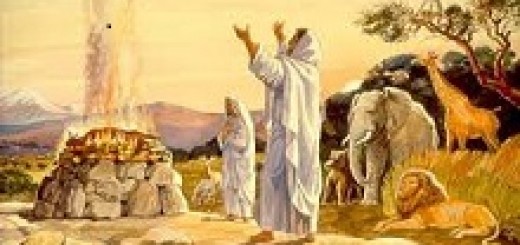By Avner Friedmann
On the verse, “And it was, when G-d destroyed the cities of the plain that G-d remembered Avraham; so He sent Lot from the midst of the upheaval, when He overturned the cities in which Lot dwelt”, Rashi asks,[1] “What specifically was HaShem’s remembrance of Avraham in connection to Lot?” He answers, “He remembered that though Lot knew that Sarah was Avraham’s wife, nonetheless, in Egypt, when he heard Avraham claim she was his sister, he had pity on him and did not inform on him. Because of this, the Holy One, blessed be He, had pity on him.”
Siftei Chachamim comments[2]– “Why didn’t G-d remember the favor Lot did for Avraham by leaving his homeland and birthplace and following Avraham everywhere he went?” The reason is because when Lot accompanied Avraham he was not doing Avraham a favor, he was doing himself a favor. Lot knew that since he was childless, if Avraham were to die, he would inherit all his great wealth[3]. However, G-d considered the fact that he did not reveal Sarah to be Avraham’s wife as a favor to Avraham. Since Lot’s motivation in following Avraham was just to inherit his wealth, he could therefore have profited greatly by revealing their secret. Avraham would be killed and he would inherit all his property. Since he did not do this, G-d considered it as a merit.
But why was Lot saved specifically for this?[4] Even the worst informer wouldn’t hand over his own uncle into the hands of murderers. Why wasn’t he rather saved for the self-sacrifice he demonstrated in Sodom when he protected his guests from the mob? He endangered his own life on their behalf and if not for the angels striking the mob with blindness, he would have been killed. Shouldn’t this act have been sufficient merit for saving Lot’s life?
Michtav M’Eliyahu answers[5]:
Much of a person’s character in the way he conducts himself is a result of his environment. He is affected by his mentors, friends and neighbors and by everything he reads or sees. Knowingly or unknowingly, his surroundings have a profound impact on him. However, though environment plays an important role in determining a person’s conduct, it does not necessarily reflect his true inner nature. A person’s true character comes from within and stems from his personal struggles with his own natural inclinations and character traits, rather than from outside influences such as from imitating others or from being brought up with good habits. Lot lived with Avraham for many years and as a result, some of Avraham’s good conduct rubbed off on him. However, that in and of itself, was not a test of his true character.
His true test was in the area of love of material wealth, which results in greed. As the Torah relates[6], it was his lust for material wealth that led him to separate from Avraham and choose to live in Sodom, a place known for material wealth and spiritual poverty. We see then, that the true test for Lot was specifically in Egypt; it was specifically there that his natural inclination to greed was challenged. G-d remembered how he restrained his urge to inform on Avraham. Since in doing so he had to break his natural inclination, G-d counted it as a virtue.
Every one of us has certain character traits or inclinations that need correction, and it is part and parcel of our mission in the world to correct them. Each one of us needs to identify his or her personal shortcomings and work on improving ourselves. Moreover, it is specifically the areas that are most difficult for us that we can identify as being our greatest challenge and mission. That is specifically where our greatest potential and hidden character lies, and as our Sages said,[7] “According to the difficulty is the reward.”
May it be that, with HaShem’s help, each of us should overcome his or her own personal shortcomings, and may we realize our true ultimate potential, with the true and complete redemption, through our righteous Moshiach. Amen.






















